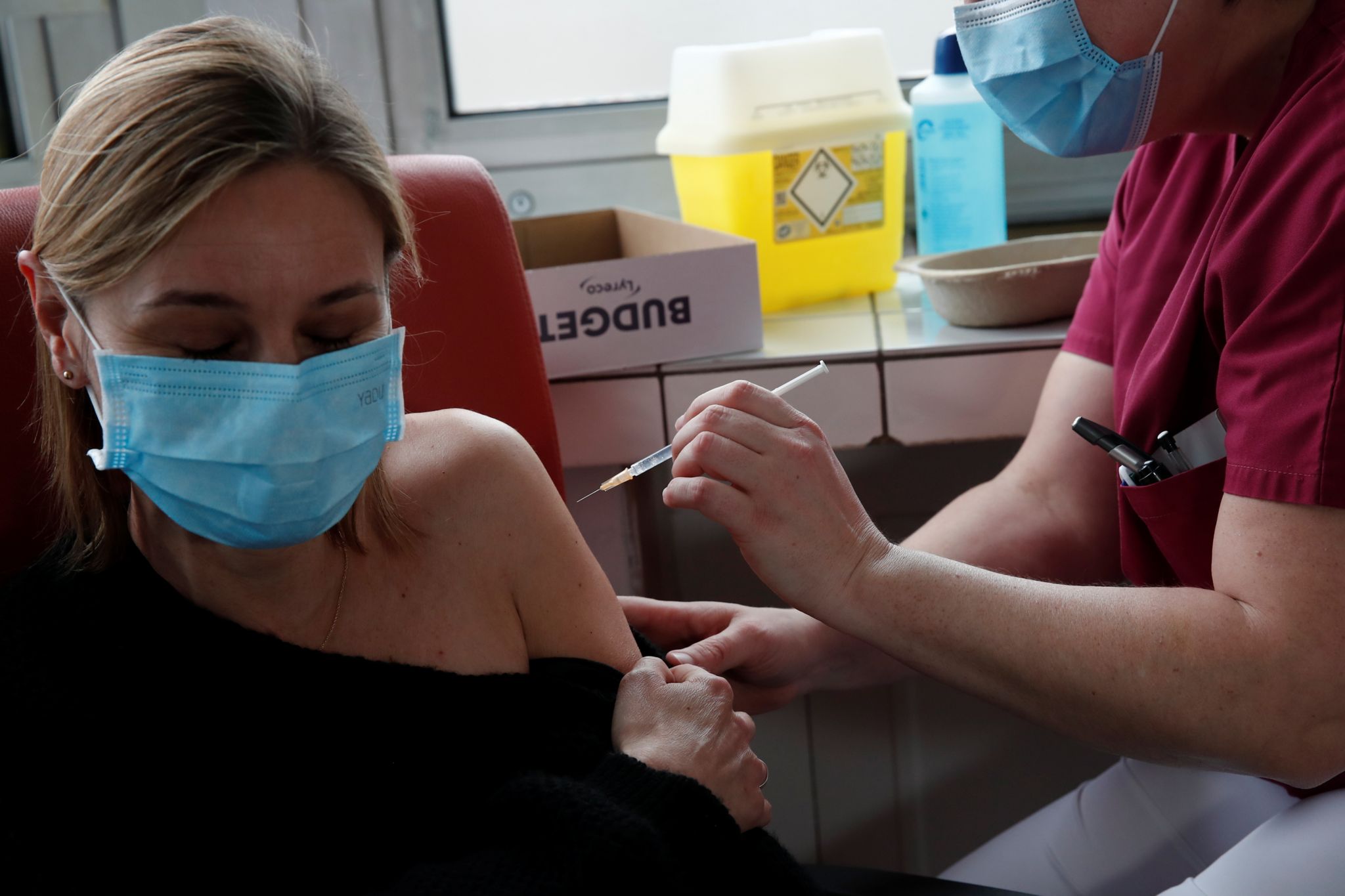Covid: France says just one jab needed for previously infected
 image copyrightReuters
image copyrightReutersFrance's health authority is recommending that anyone previously infected with Covid-19 should only receive one vaccine jab, instead of the normal two doses.
People who recover from Covid have some immunity and should be inoculated three-six months afterwards, it said.
France is the first country to issue this advice.
It has delivered nearly 2.8 million vaccinations so far, the health ministry said.
"The single vaccine dose will thus play the role of a booster" for someone previously infected with coronavirus, the Haute Autorité de Santé (HAS) said.
The recommendation comes as governments around the world are rushing to vaccinate their populations and try to return life to normal.
At least 3.4 million people in France have had confirmed Covid-19 infections but the true figure is thought to be higher. Around 81,000 people have died - the seventh-highest figure in the world.
France's inoculation programme began in December but is lagging behind that of other countries like Israel, the United Arab Emirates and the UK.
The three main vaccines used globally are administered in two doses, delivered several weeks apart.
But HAS said that four studies suggest that a single dose in someone who has recovered from coronavirus produces a sufficient immune response to protect against further infection.
"People who have already been infected retain an immune memory," HAS said in a press release. "The single dose of vaccine will thus act as a booster."
The agency has not said how this recommendation could be acted on or how France would identify who has already contracted Covid-19 and when.
People with suppressed immune systems should still receive two doses, the agency added.

Two doses may still be simpler

Vaccines work by mimicking the infection that they are designed to protect against. They teach the body how to recognise and fight the real disease. But it can take time for the immune system to learn this lesson and, often, a booster shot is needed to create a lasting immune memory.
It's reasonable to assume people who have already caught and recovered from coronavirus will have some of this immune memory. Scientists think that memory could, perhaps, be sufficiently reawakened with a single shot of vaccine.
A couple of studies have already looked at this - giving a single dose of either the Pfizer or Moderna mRNA vaccine to people known to have had coronavirus in the past. In both of these studies, the vaccine appeared to work well, prompting their immune systems to quickly make lots of antibodies against the virus.
The large quantities seen suggest their body was already "primed" by the natural infection to respond.
More studies are needed to confirm this, but it might be one way to free up extra vaccine doses to share around the world. Confirming which people have definitely had coronavirus takes time and tests, however. Pragmatically, it may still be simpler and faster to give everyone two doses, as already recommended.

On Friday French Health Minister Olivier Veran visited the region of Moselle in eastern France where highly-contagious new variants of Covid-19 are spreading.
Strains first detected in Brazil and South Africa account for 4% to 5% of all new cases registered in France and can still be contained, he said on Thursday. A mutation first identified in the UK accounts for 25% of new infections.
On Friday the chief scientist for the World Health Organization Soumya Swaminathan said there were reports of people being re-infected with new strains.
Pharmaceutical companies have said that tweaks to existing vaccines should make the jabs work against mutations of the virus and that booster jabs will probably be necessary in the future.



No comments